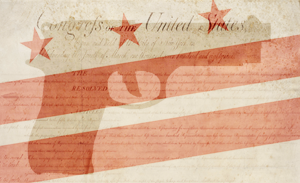Today, Alan Gura gets a decision on how much he should be paid by DC for having to fight on behalf of Dick Heller & others against the city’s unconstitutional gun laws.
A federal judge on Thursday issued an opinion awarding Heller’s attorneys $1,137,072.27 in fees and expenses. The attorneys had argued they should be awarded $3.1 million. Attorneys for the city said the figure should be closer to $840,000. …
The judge’s opinion awards Gura approximately $662,000 for more than 1,500 hours of work on the case, paying him at a rate of $420 per hour. Five other members of Heller’s team are also compensated.
There’s no comment from Gura in the article, but the city is very happy with the award.


When I see Alan next week, I expect him to pick up the drinks!
Hell yeah they are, they walked away with near the minimum.
Couldn’t happen to a nicer guy, and with the incentives all aligned in our favor – that’s why we win.
Should have been 2.4 million. I’m thinking the judge was in the tank for the city!!
But the city residents should be angry, they have another loss scheduled to lose, don’t they?
From the linked article: “Heller’s lead lawyer, Alan Gura, says his team is still studying the opinion and possible next steps. Gura said he is pleased with much of the opinion, but he said the fee calculation the judge used was outdated and that lawyers doing similar work in Washington are typically compensated at a higher rate.”
Then the article has been updated since the post. At press time, they had no comment.
Yeah, that’s what I figured. I think news articles should be marked when they’re updated, but I guess they don’t agree.
If the city is happy with the deal, then Gura got short changed. One of the rules of contract negotiations: If both parties walk away feeling they go short changed, the deal was a good and fair one.
DOJ uses a sliding scale – the Laffey Matrix – based upon years out of law school. Current version is much higher than that, Though I don’t know when Gura graduated from law school. Here’s a link to one version of it.
http://www.laffeymatrix.com/see.html
You need to assign hours based upon the date they were incurred (it helps to keep very detailed billing records even though you aren’t billing anyone). Also, you don’t get to recover for ALL the hours you put in, only the reasonable time you spent working on the specific issues you were victorious on.
Gura graduated from Georgetown in 1995.
So then, based on the linked Matrix (which the Department of Justice used this fall in a case with me) this award seems to me to be on its face within the appropriate range.
Most of the heavy legal work happened in 2002-2006. His rate – and the rate of the others – will change year to year as they progress on the Matrix.
And recall that ultimately, only Heller’s claim prevailed – as a result there isn’t a recovery for the substantial portion of the underlying Parker work related to all the other original Parker litigants.
The original petition sought a multiplier due to the exceptional nature of the case, which was completely denied. If vindicating one of the amendments of the bill of rights isn’t exceptional, I’m not sure what is.
http://volokh.com/posts/1220793701.shtml has some discussion from when the original fee petition was filed, including replies by Gura himself. I’ll quote his first comment:
Don’t disagree with anything that Gura addressed in the post. In my own case, where we won our second consecutive decision in a 2nd Circuit Court, over an illegal EPA rulemaking, we debated raising the stakes based on our disappointment over the total number we were eligible for under Laffey. But we decided to settle with DOJ over the amount owed because it frankly wasn’t worth the time and cost to litigate against them over.
In Gura’s case, DC refused to accept any responsibility. I tend to personally think they should get hit harder as a result, but unfortunately, that’s not the way the system works.
Same with the idea that Laffey isn’t necessarily controlling. That is true. But its also what the court system is used to, and my experience has been that a court always takes the path of least resistance. And if the court simply follows the Laffey Matrix, then your going to have a hard time convincing a higher court it amounts to a fundamental mistake worthy of overturning.
If they decide to file an appeal, then they stand a better chance of securing their enhancement. But I wouldn’t expect a district court to do that. And the court following the prevailing standard hardly qualifies him as being “in the tank.”
Now if we can just get Chicago to compensate the victims of violence who weren’t able to defend themselves because of the city’s totalitarian, pro-criminal gun bans…